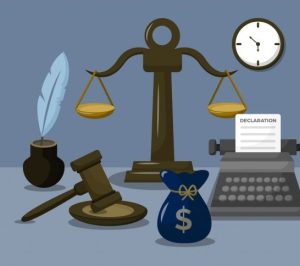What is the Lowest Paid Lawyer
Determining the “lowest paid lawyer” isn’t straightforward as salaries vary greatly within the legal field. However, some areas tend to offer lower compensation overall. Public defenders and legal aid attorneys, who represent individuals unable to afford private attorneys, often have median salaries below $65,000. Additionally, lawyers in specific practice areas like immigration or legal services might see lower average salaries compared to, say, corporate or intellectual property law. However, it’s important to remember that even within these “lower-paid” categories, individual salaries can differ based on experience, location, and other factors.
Exploring Different Legal Specializations
Legal practice encompasses a myriad of specialties, each with its unique demands and compensation structures. From corporate law to public interest advocacy, the breadth of legal fields offers opportunities for lawyers to pursue areas aligned with their interests and expertise. However, the financial rewards associated with these specialties vary significantly, with some commanding higher salaries than others. Understanding the nuances of pay disparities across legal specializations is crucial for aspiring lawyers and seasoned professionals alike.
Factors Influencing Lawyer Salaries
Several factors contribute to the variation in lawyer salaries, shaping the earning potential of legal practitioners. Educational background and experience play a pivotal role in determining an individual’s market value within the legal industry. Advanced degrees, prestigious alma maters, and years of practice can significantly influence compensation levels. Moreover, geographical location exerts a profound impact on lawyer salaries, with urban centers often offering higher wages to offset the higher cost of living. Additionally, the type of employer, whether a large law firm, government agency, or non-profit organization, can dictate salary structures and benefits packages for lawyers.

Challenges Faced by Low-Paid Lawyers
Despite their unwavering commitment to the pursuit of justice, low-paid lawyers encounter various challenges that stem from their modest incomes. Financial struggles are a pervasive concern, as many legal professionals find themselves grappling with student loan debt, high living expenses, and limited earning potential. These financial constraints not only affect their well-being but also impact their career satisfaction and professional development. The disparity between the societal importance of their work and the financial rewards they receive can lead to disillusionment and burnout among low-paid lawyers.
Strategies for Low-Paid Lawyers
In navigating the complexities of low wages, lawyers can employ various strategies to mitigate financial strain and advance their careers. Budgeting tips, such as creating a comprehensive financial plan and prioritizing essential expenses, can help low-paid lawyers manage their finances more effectively. Additionally, seeking out career advancement opportunities, such as pro bono work, continuing education, and networking events, can enhance their professional growth and visibility within the legal community.
Debunking Myths About Low-Paid Lawyers
Misconceptions abound regarding the work and value of low-paid lawyers, perpetuating stereotypes that undermine their contributions to society. Dispelling these myths is essential for recognizing the diverse roles and responsibilities undertaken by legal professionals across different income brackets. By highlighting the value of their work in promoting access to justice, defending individual rights, and advocating for marginalized communities, we can challenge prevailing narratives and foster greater appreciation for the essential role played by low-paid lawyers.
Importance of Access to Justice
Central to the mission of low-paid lawyers is the pursuit of justice for all individuals, regardless of their socioeconomic status or background. By providing legal representation to underserved populations, including low-income individuals, immigrants, and victims of discrimination, these legal professionals play a vital role in ensuring access to justice for those most in need. Moreover, their work extends beyond individual cases to address systemic inequities and promote social change, thereby enhancing the overall well-being of society.

Support Systems for Low-Paid Lawyers
Recognizing the challenges faced by low-paid lawyers, various support systems and resources have been established to provide assistance and advocacy. Legal aid organizations offer pro bono services, financial assistance, and professional development opportunities to support lawyers working with disadvantaged communities. Additionally, community resources, such as mentorship programs, peer support groups, and mental health services, can provide valuable assistance to low-paid lawyers seeking guidance and encouragement in their careers.
Advocacy for Fair Compensation
Efforts to improve salaries for lawyers, particularly those working in low-paid specialties, require concerted advocacy and policy interventions. By raising awareness of the financial challenges faced by legal professionals and advocating for fair compensation practices, stakeholders can contribute to a more equitable legal profession. Policy recommendations, such as loan forgiveness programs, salary transparency measures, and increased funding for legal aid services, can help address systemic barriers to fair compensation and promote greater economic security for low-paid lawyers.
Conclusion
In conclusion, the plight of low-paid lawyers highlights the intersection of financial insecurity and professional dedication within the legal profession. By understanding the factors influencing their salaries, acknowledging their challenges, and advocating for fair compensation, we can support the vital work undertaken by these legal professionals in advancing justice and upholding the rule of law. Through collaborative efforts and a commitment to equity, we can ensure that all lawyers, regardless of their income level, are valued and respected for their contributions to society.
FAQs
What are the average salaries of low-paid lawyers?
The average salaries of low-paid lawyers vary depending on factors such as location, experience, and employer. However, they tend to be below the national average for lawyers.
Can low-paid lawyers still have fulfilling careers?
Despite the financial challenges they face, many low-paid lawyers find fulfillment in serving their communities and advocating for social justice. Fulfillment in a legal career often stems from the impact of one’s work rather than monetary compensation alone.
How can aspiring lawyers prepare for potential low salaries?
Aspiring lawyers can prepare for potential low salaries by researching different legal specialties, networking with professionals in the field, and seeking out opportunities for internships or volunteer work to gain experience and insight into their chosen practice areas.
What are some common misconceptions about low-paid lawyers?
Common misconceptions about low-paid lawyers include assumptions about their competence, dedication, and the value of their work. In reality, low-paid lawyers often provide essential legal services to underserved communities and play a critical role in promoting access to justice.
What resources are available for low-paid lawyers seeking support?
Low-paid lawyers can access resources such as legal aid organizations, bar associations, and community support networks for assistance with professional development, financial planning, and mental health support.